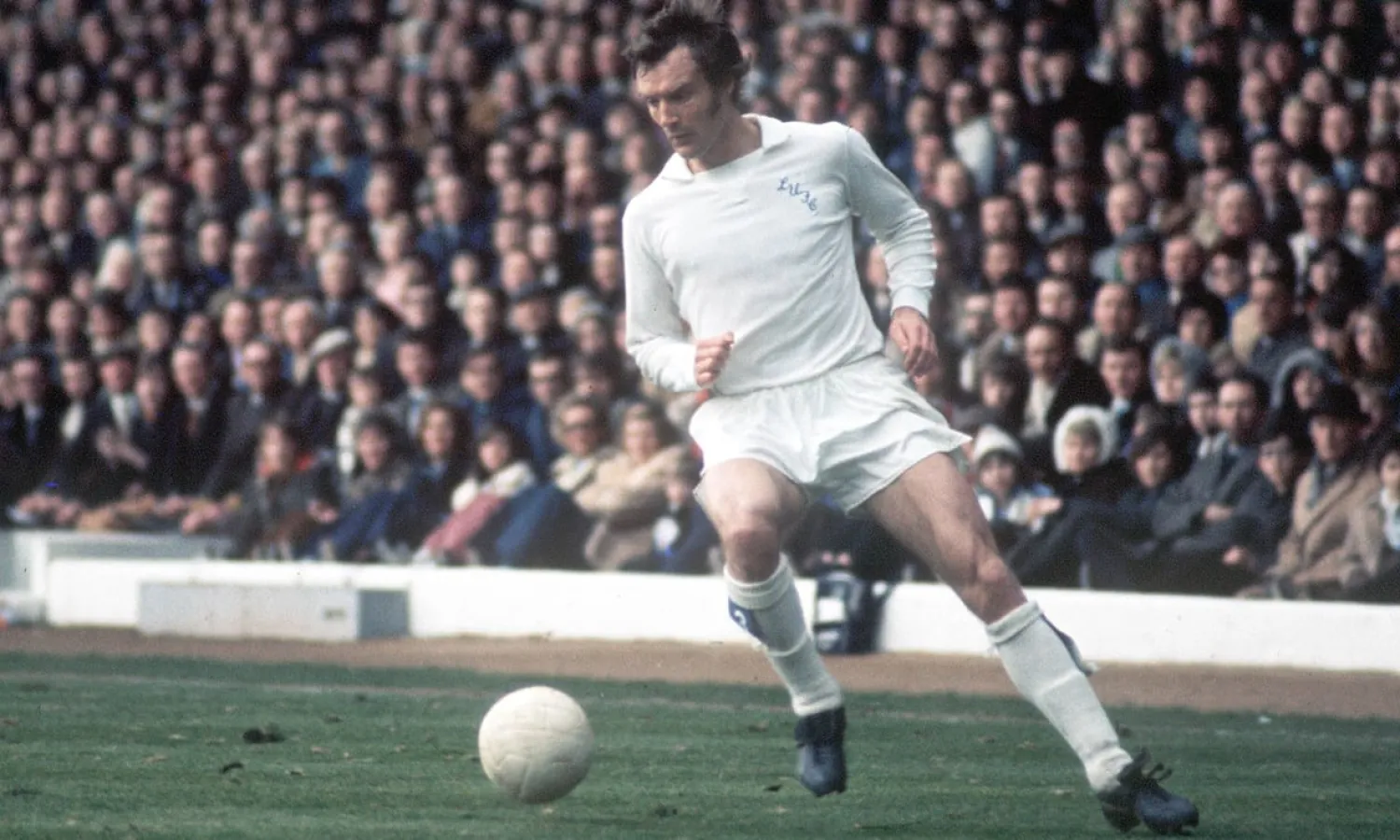So versatile was the footballer Paul Madeley that in his 18 years at Leeds United during the 1960s and 70s he played in every position bar goalkeeper, prompting his team-mate Johnny Giles to describe him as “seven top-class players in one”. The ultimate utility player, Madeley, who has died aged 73, also appeared in seven different roles for England, although in general he was best known as a defender, especially in his later years.
Madeley’s all-round prowess made him an indispensable fixture in Don Revie’s best Leeds sides, with whom he won two league titles, an FA Cup, a League Cup and two Fairs Cups during the glory years at Elland Road from 1965 to 1975. A staunch loyalist, he stayed on even when fortunes waned, and retired in 1980 having made 711 appearances for the club.
Revie’s Leeds were renowned for their hard, physical edge, but while Madeley never overlooked his duties in the tackling department he also brought a more cultured feel to the side with his neat, composed passing and intelligent reading of the game. Well balanced and rarely ruffled, he was a calming influence in a team of uncompromising characters.
Born in the Beeston area of Leeds, one of the three sons of Gladys (nee Nelson) and John Madeley, he left Parkside school in the city to work as an insurance clerk while playing as a defender for the local non-league club Farsley Celtic. He was signed by Second Division Leeds as a 17-year-old, making his debut at center-half two years later in 1964, the year Leeds won promotion to the top flight and began a period of high attainment over the next decade.
He rarely missed a game as Leeds became one of the most formidable teams in Europe – playing with ease at left- or right-back, as a center-half, sweeper, on either flank in midfield as well as in the center, or, for good measure, as an attacking midfielder or striker if required. He appeared as a forward in the League Cup final victory over Arsenal in 1968 and again in the two-legged 1971 Fairs Cup final win against Juventus in which he wore the No 11 shirt for both ties, scoring a crucial goal in the first.
Although a quiet, modest man, Madeley was certainly listened to within the Leeds hierarchy, and it was said to be his intervention, after the departure of Revie, that sealed the fate of Brian Clough during his famous 44-day reign as Leeds manager in 1974. During an emergency meeting to discuss Clough’s controversial start to his new position, various parties struggled to get their point across to the Leeds director Sam Bolton until Madeley stood up to announce, quite bluntly, that “what the players are trying to say, Mr Bolton, is that he’s no good”. That was enough for the club management, and Clough was on his way.
With England, Madeley showed a similarly quiet resolve. He made his debut for his country in 1971, but that was later than it might have been. He had turned down a request from Sir Alf Ramsey to join the 1970 World Cup squad in Mexico in place of his club-mate Paul Reaney, who had broken a leg. Madeley informed Ramsey that he would prefer to go on holiday with his family after a grueling season with Leeds. Yet, as some measure of Madeley’s stature, within the game, the England manager did not appear to hold it against him.
Playing mainly in defense, including as a center-half alongside Bobby Moore, he was capped 24 times thereafter, with the last of his appearances coming against Holland in 1977. It is possible that he regretted his decision to miss the 1970 finals, for England did not qualify for any major tournament during his time in the side.
Madeley retired from football during the 1980-81 season in his mid-30s and moved quickly into business, having already taken an interest in a paint and DIY enterprise with members of his family. The company flourished, and it was eventually sold for around £30m in 1987. From the early 1990s, however, he suffered from ill health in multiple guises. In 2003 he was diagnosed with Parkinson’s disease, and he died from complications associated with that condition.
He is survived by his wife, Ann (nee Telford), whom he married in 1969, and by their sons, Jason and Nick.
• Paul Edward Madeley, footballer, born 20 September 1944; died 23 July 2018
(The Guardian)









